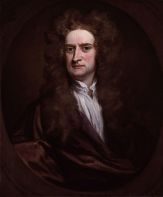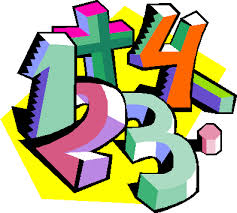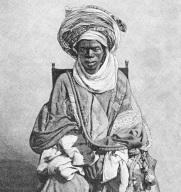
Here is a quote from the obituary of an African man born somewhere between modern-day Liberia and Benin in 1710, and enslaved and shipped to become a slave in America: “Thus died Negro Tom, this self-taught arithmetician, this untutored Scholar! — Had his opportunities of improvement been equal to those of thousands of his fellow-men, neither the Royal Society of London, the Academy of Science at Paris, nor even Newton himself, need have been ashamed to acknowledge him a Brother in Science” [Columbian Centenial, December 29, 1790, No. 707, p.123, col.32, Boston, Massachusetts]. So who was this Negro Tom, a slave who was given an obituary in an American journal in the 1700s?
 Thomas Fuller, also known as Negro Tom or the “Virginia Calculator”, can be called today a mental calculator or simply a human calculator. In today’s world when most people run to their phones or calculators to find answers, He solved problems faster than over 99% of men of his time, and in his head!
Thomas Fuller, also known as Negro Tom or the “Virginia Calculator”, can be called today a mental calculator or simply a human calculator. In today’s world when most people run to their phones or calculators to find answers, He solved problems faster than over 99% of men of his time, and in his head!
When Thomas Fuller was 70 years old, a Philadelphia Quaker and businessman, William Hartshorne, and three fellow Quakers traveled from Philadelphia to meet the slave known for his arithmetic feats. One of the visitors took notes and made calculations on paper, and the others fired questions at the gray-haired old slave.
First question: How many seconds are there in a year and a half? In about two minutes came Tom Fuller’s reply — 47,304,000.
Next question: How many seconds has a man lived who is 70 years, 17 days and 12 hours old? Fuller’s answer — 2,210,500,800 — came in a minute and a half. “Objection,” called the recorder, who was busily multiplying on paper. He challenged Fuller’s answer as being too large. But Fuller retorted promptly” ” ‘top, massa, you forget de leap years.” By adding the seconds of the leap years, the recorder finally acknowledged the correctness of Fuller’s result.

The final question was proposed to Fuller: Suppose a farmer has 6 sows and each sow has 6 female pigs the first year, and they all increase in the same proportion each year. At the end of the 8th year, how many sows will the farmer have? The question was stated in such a way that Fuller misinterpreted it. As soon as the statement was clarified, his lightning mind responded: 34,588,806. (Fuller misinterpreted the question because the term “proportion” was ambiguous.)
These questions were asked at a time when Thomas Fuller was 70 years old; just imagine how fast he must have been when he was younger? It is such a pain that such a great mind was imprisoned in slavery!

His capacities were not a rarity in Africa. It is now known that Thomas Fuller must have already developed his calculation abilities in Africa. John Bardot’s 1732 account of people in Fida on the coast of Benin: “The Fidasians are so expert in keeping accounts, that they easily reckon as exact, and as quick by memory, as we can do with pen and ink, though the sum amount to never so many thousands: which very much facilities the trade the Europeans have with them.”
To learn more about Thomas Fuller, please check out the original article in the American Museum, Vol.V, 62, Phila., 1799., and the work of the Mathematicians of the African diaspora. Also check out this article in The Christian Science Monitor by Jane H. Pejsa, “A Wizard in any age.” I think the title should have been “a wizard in any age, and under any circumstances” because without slavery Tom Fuller would have been a genius and his name would have been on our lips the same way Newton’s has been for the past 300 years!


Great post. I had never heard of Thomas Fuller. Thanks for enlightening me.
Keep it up.
God bless.
LikeLike
Reblogged this on Green Ankh Works.
LikeLike
I had never heard of Thomas Fuller before. That’s phenomenal! We really have brilliant minds here, but they never get exposed.
LikeLike
Yes, we do have brilliant minds
LikeLiked by 1 person
Of course, and I’ve been finding out even more of them. Yesterday, I found out about Granville T. Woods who was a Black inventor who created electric railcars, the railway telegraph system, and the third rail. Thomas Edison tried to plagiarize and take credit for his railway telegraph system and another invention, but Woods sued him and won TWICE! Edison begged him to for for his company which he declined.
LikeLike
Oh Wow… I had heard about Granville T. Woods, but I did not know that he had sued Thomas Edison and won twice! This is absolutely marvelous!
LikeLiked by 1 person
I know, right? I found that out from a documentary I recently watched and will eventually review. That was amazing and even Nikola Tesla couldn’t even pull that off and Edison ripped him off, too!
LikeLike
Wow! There is so much buried that will be un-buried!
LikeLiked by 1 person
Yup. I’ve been researching so many things with these great inventors and I’m just amazed by how well they helped the world. I hope more of these names and inventions would come to light.
LikeLike
Great post! Your blog is like going to school all over again. In a positive way.
LikeLike
Thank you for your comment Africa Vaidosa… it goes straight to my heart
LikeLike